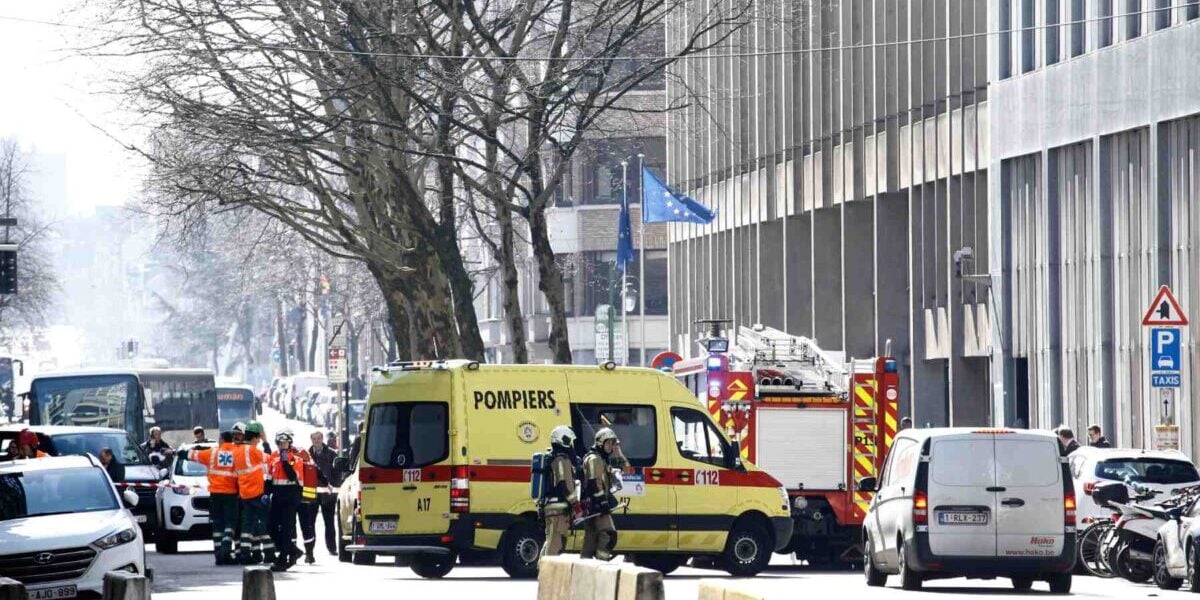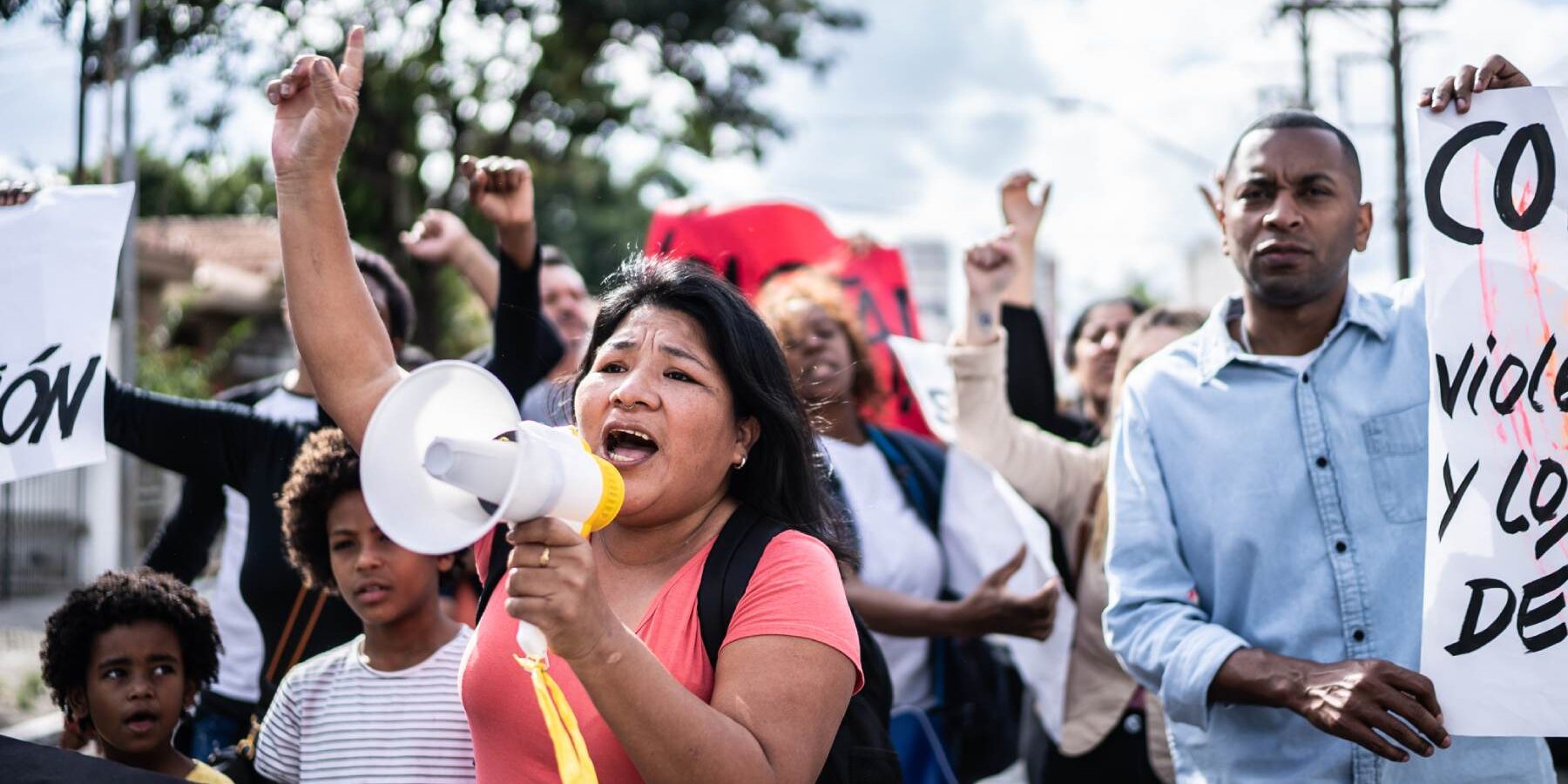
Staying Informed and Prepared in Uncertain Times
 While international travel is more accessible than ever, it’s important to recognize that safety concerns, particularly terrorism, are more pressing than they once were. Sadly, this threat is growing worldwide, even in popular European destinations like Paris, London, and Brussels, which have experienced attacks in recent years.
While international travel is more accessible than ever, it’s important to recognize that safety concerns, particularly terrorism, are more pressing than they once were. Sadly, this threat is growing worldwide, even in popular European destinations like Paris, London, and Brussels, which have experienced attacks in recent years.
Although such incidents are unpredictable, you can enhance your safety by staying informed, following local guidelines, and avoiding high-threat areas. Securing the right kind of travel insurance can also offer a helpful safety net, offering reimbursement for trip cancellations and assistance in emergencies. To help you stay safe during your travels, this article provides practical tips and resources for navigating high-risk areas and managing potential threats while enjoying your adventures overseas.
While international travel is more accessible than ever, it’s important to recognize that safety concerns, particularly terrorism, are more pressing than they once were. Sadly, this threat is growing worldwide, even in popular European destinations like Paris, London, and Brussels, which have experienced attacks in recent years.
Although such incidents are unpredictable, you can enhance your safety by staying informed, following local guidelines, and avoiding high-threat areas. Securing the right kind of travel insurance can also offer a helpful safety net, offering reimbursement for trip cancellations and assistance in emergencies. To help you stay safe during your travels, this article provides practical tips and resources for navigating high-risk areas and managing potential threats while enjoying your adventures overseas.
Understanding Today's Terrorist Threats
The nature of terrorist threats has changed significantly over the past two decades. Since the early 2000s, especially after the 9/11 attacks, the tactics used by terrorists have shifted. While large-scale coordinated bombings were more common in the past, recent years have seen an increase in smaller, localized attacks.
Today, attackers often use methods like driving vehicles into crowds or using knives. These attacks are usually carried out by individuals acting alone and motivated by extremist beliefs. The rise in mass shootings with terrorist motives in the United States underscores the need for travelers to be vigilant about safety threats when abroad.
Research and planning ahead are essential for staying safe while traveling. Many governments provide travel advisory systems that identify high-risk areas and suggest safety precautions. For travelers from the U.S., joining programs like the Smart Traveler Enrollment Program (STEP) can also improve your safety while you’re away.
You can also follow guidelines to enhance your safety while traveling, which we will discuss later in this article. We’ll also share practical tips and actions to take in case of an emergency situation, helping you feel prepared and informed during your travels.
Staying Updated with Travel Advisories and Alerts
When planning international travel, it's essential to stay informed about the safety of your destination. Countries like the U.S., Canada, Australia, and the U.K. provide up-to-date travel advisories that assess the safety of various locations and offer valuable safety tips.
These advisories provide insights into a destination’s overall safety, including its history of terrorist attacks. In addition to general advisories, many countries issue travel alerts for short-term risks, warning travelers about recent incidents or upcoming events that may elevate the risk of danger.

Country-Specific Travel Advisories
Below are some of the most recognized and frequently used travel advisories and resources to help you stay informed while traveling overseas:
- Centers for Disease Control and Prevention (CDC) Travel Notices: Offers health-related travel notices for specific countries, including updates on disease outbreaks, recommended vaccinations, and health risks for travelers.
- European Union Travel Advice: Provides safety information, travel recommendations, entry requirements, and advice for travelers within and to E.U. member countries.
- Government of Canada Travel Advice: Issues country-specific travel advisories and safety warnings for Canadian travelers, covering risks such as terrorism, political instability, health issues, and natural disasters.
- Gov.UK Foreign Travel Advice: Provides detailed country-specific advice for U.K. travelers, including safety concerns, travel restrictions, and health advisories.
- International SOS Travel Safety Services: A global security and health service offering real-time, country-specific travel safety alerts and health information tailored for businesses and individuals traveling internationally.
- SmarTraveler Australia: Offers country-specific travel advisories, security updates, health recommendations, and safety tips for Australian travelers.
- U.S. Department of State Travel Advisories: Provides travel warnings, safety alerts, and general security information for U.S. citizens traveling internationally, including potential risks and local conditions.
- World Health Organization (WHO) Travel Health Advice: Publishes health-related travel advisories by country and region, focusing on disease outbreaks, preventive health measures, and vaccination recommendations.
These resources are excellent for getting up-to-date information on potential risks in different countries, helping travelers make informed decisions based on their destination.
Read More: A Guide to Travel Advisories, Warnings, and Alerts
Registering for the Smart Traveler Enrollment Program (STEP)
The Department of State Bureau of Consular Affairs offers the Smart Traveler Enrollment Program (STEP) for U.S. citizens traveling abroad.
This program allows all U.S. citizens and nationals to register their trip with the closest U.S. Embassy or Consulate. Participating in STEP is easy and only requires a simple online enrollment. Frequent travelers can even create a secure account to manage all their trips in one place.
Some of the benefits of enrolling in STEP include:
- Receive Updates: You’ll get timely updates from the Embassy about travel advisories in your destination country, allowing you to make informed travel decisions.
- Emergency Contact: The U.S. Embassy will be able to reach you in case of an emergency.
- Family Assistance: The Embassy can also help your family and friends contact you in an emergency.
Tips for Avoiding Terrorist Incidents While Traveling
Terrorist attacks often result from a deliberate strategy, but individuals or groups can sometimes become "targets of opportunity." The U.S. Department of State provides practical tips on avoiding such situations. These practices can enhance your safety and potentially deter would-be terrorists:
Stay Safe At Airports
- Schedule direct flights if possible. Avoid stops in high-risk airports or areas.
- Don't spend too much time in the public area of an airport. Move quickly from the check-in counter to the security screening.
- Watch for abandoned packages or other suspicious items. Report them to airport authorities and leave the area quickly.
- As much as possible, avoid drawing attention to yourself.
Be Cautious in Public Venues
- Avoid, or be very careful, when spending time at "soft" targets, including crowded venues like sports games, political rallies, holiday celebrations, places of worship, and tourist sites.
- Know that Western-branded venues or Western-like facilities may be targets for terrorists.
- Don't meet with strangers at unknown or remote locations.
- Report any suspicious activity or people to local police and the nearest U.S. embassy or consulate.
- Keep a mental note of possible safe locations, such as police stations, hotels, and hospitals, and formulate a plan of action if a terrorist attack or security incident occurs.

Use Taxis and Rental Cars Safely
- If possible, travel with others.
- Always carry a charged cell phone, and inform friends, family, and colleagues of your departures and arrivals.
- Select taxicabs at random, and don't use an unlicensed cab. Taxis, Uber, or Uber-like vehicles should have photo licenses displayed inside or on the phone app. Compare the image to the driver, and record license plate information in your phone as a precaution.
- When driving rental or personal vehicles, inspect them for suspicious items or marks.
- Drive with car windows closed whenever possible.
- Check that your vehicle is operating well, and ensure it has at least half a gasoline tank.
Protect Yourself at Hotels
- Review evacuation and shelter-in-place plans for your hotel room.
- Know the identity of visitors before opening the door of your hotel room.
- Don't meet strangers in your hotel room.
- Refuse unexpected packages.
- Report suspicious activities to the hotel’s front desk or security office.
Actions to Take During a Terrorist Attack
Suppose you checked all the alerts and advisories and stayed away from dangerous places but still got caught in a terrorist incident. It's an unsettling thought, but if it happens, there are steps you can take to prepare yourself and stay as safe as possible.
- Mental Preparation: Acknowledge the possibility of an attack and develop a plan for where to go and what to do if one occurs. Rehearse this plan a few times before you travel to ensure you're ready for any situation.
- Know Your Surroundings: Stay aware of police stations, hospitals, hotels, and other safe locations nearby. Memorize those close to your accommodations and learn how to identify safe places wherever you're out and about.
- Follow the "Run, Hide, Fight" Rule: In the event of a terrorist attack:
- Run: If possible, evacuate quickly.
- Hide: If escape isn't feasible, find a safe place to conceal yourself.
- Fight: As a last resort, if your life is in danger, be prepared to yell and defend yourself.
- Active Shooter Situations: If you encounter an active shooter, follow the same "run, hide, fight" rule. The U.S. Department of Homeland Security provides detailed guidance on what to do if someone starts shooting nearby.
Notifying Loved Ones After a Terror Incident
Family and friends at home will naturally be worried if they know you’re in an area affected by an attack. Before your trip, share a detailed itinerary with them, including your contact information.
After an incident, consider using tools like Facebook’s Safety Check. This allows loved ones to mark themselves as safe during emergencies, which can be especially helpful if you can't text or call.
Next Steps Following a Terrorist Attack
If you are injured or require emergency help, check your destination's emergency response procedures. In the U.S., you can dial 911 for emergency services. Our healthcare system guides provide information on getting emergency care while traveling in various countries.
If emergency services are disrupted, contact your local embassy for help. You can locate the nearest embassy or consulate by visiting:
- Australian citizens: Our Embassies and Consulates Overseas
- British citizens: Find a British embassy
- Canadian citizens: Embassies and consulates by destination
- U.S. citizens: USEmbassy.gov
In an emergency, U.S. residents can call 888.407.4747. The U.S. State Department operates this number 24 hours a day, 7 days a week.
After a terrorist incident, it's also common for people to need psychological support. Once the immediate danger has passed, don't hesitate to seek counseling or other mental health care.
Protecting Yourself with Travel Insurance
Before you travel, it’s a good idea to secure travel insurance that covers war and terrorism. Most travel health insurance plans include coverage for injuries resulting from terrorist acts, ensuring your medical expenses are taken care of if you're injured during an attack.
Many trip cancellation and interruption insurance plans also offer coverage, so you can cancel or change your plans if an attack happens before your arrival.
Remember that each insurance plan has different rules regarding when you need to purchase it and how far in advance you can cancel. Therefore, make sure to ask questions and thoroughly research the best insurance options for your needs. Securing the right travel insurance for terrorism at the appropriate time can provide peace of mind during your trip.
Recommended Travel Insurance Plans With Terrorism Coverage
We recommend the Atlas Travel and IMG Patriot Platinum travel medical plans, both of which include coverage for terrorism and political evacuation benefits:
- Atlas Travel Medical Plan:
- Terrorism Coverage: Atlas will cover up to $50,000 in medical expenses resulting from a terrorist attack, provided the country you visit is not under a travel advisory. Be sure to check travel advisories carefully to assess your risks.
- Political Evacuation Benefit: If you are already at your destination when the United States issues a travel warning for that country, Atlas Travel will coordinate and pay for your evacuation out of that country, covering up to $100,000.
- IMG Patriot Platinum Plan:
- Crisis Support–Terrorism: This plan includes up to $50,000 of coverage for terrorism-related events that occur in a country that is not currently under a travel advisory.
- Political Evacuation & Repatriation: The plan also provides up to $100,000 of coverage for necessary political evacuation and repatriation due to military coups, political unrest, civil uprisings, or armed conflict in the country you are traveling to. Note that IMG must approve your claim before this benefit can take effect.
Additionally, the IMG Patriot Platinum plan offers an optional Trip Cancellation, Interruption, & Travel Delay rider for U.S. residents purchasing an individual plan.
Cancel For Any Reason Insurance (CFAR)
We’ve explored the importance of planning and securing adequate travel insurance before you go, but what happens if your travel plans are disrupted by an emerging threat? For instance, what if you've booked a trip to a destination that suddenly appears unsafe? Perhaps your government issues a travel alert, prompting you to rethink your plans.

In such cases, standard travel insurance may not cover cancellations if an actual attack hasn't occurred. This is where Cancel for Any Reason (CFAR) insurance becomes a crucial option. This type of coverage reimburses you for up to 75% of your prepaid expenses if you cancel your trip at least two days before your departure date.
If you're considering a CFAR plan, be sure to check the rules carefully. You must purchase it well in advance of your trip and before the U.S. government issues a terrorist travel alert or warning. If you're planning to travel to a destination that occasionally has high alert levels, a CFAR plan can provide peace of mind.
Real-Life Scenarios Where Terrorism Travel Insurance Can Help
As you research your destinations and consider the best insurance options for your needs, reflect on these scenarios to better understand how travel coverage for terrorism can protect you:
Terrorist Attack Before Your Honeymoon
You plan a second honeymoon to Europe, covering all the major sights. You purchase travel insurance with terrorism coverage, and none of your destinations currently has a travel alert.
However, an attack occurs just a week before you arrive at your first stop. If you cancel, your travel insurance will reimburse you since the policy was secured before the incident.
Terrorist Attack in Turkey
Your dream tour through Turkey turns into a nightmare when a terrorist explosion happens a couple of weeks before your trip. You decide to purchase insurance, but another terrorist incident occurs a week later, leading you to want to cancel your trip.
Unfortunately, since you bought your coverage within 30 days of a terrorist event, trip cancellation won’t apply. This highlights the importance of planning far in advance and checking travel advisories before you book, especially when traveling to higher-risk places.
Terrorism on Airplanes
You’re preparing for a trip or getting ready to return home when a terrorist attack occurs on another airplane operated by the same airline you’re flying. Unfortunately, this isn’t a covered reason for trip cancellation.
However, if a terrorist attack causes your airline to stop service for 24 hours or more, it may be covered by your travel insurance. Be sure to check with your provider to confirm if this benefit is included. If this happens while you are abroad, contact the U.S. embassy or consulate to arrange your safe return home.
Civil Unrest While Abroad
After contentious election results, you’ve just arrived at your hotel when riots break out on the street below. You want to return to the airport and head home, but civil unrest typically differs from a terrorist attack and may not be covered by trip cancellation insurance.
However, if your tour is interrupted for more than 24 hours, your travel insurance would likely cover that. As always, review the fine print before purchasing a policy.

Travelers should be aware that even violent civil unrest might not fall under their travel insurer's definition of terrorism. There is a clear distinction between terrorism and civil disorder. Typically, the U.S. government needs to declare that a situation is an act of terrorism.
In certain circumstances, your travel insurance company can assist with evacuation. Many providers offer a Political Evacuation benefit that helps cover the costs of leaving a country during periods of unrest.
How Security Threat Levels Can Impact Coverage
While it’s a good idea to get travel medical insurance that covers terrorism – providing important medical care during an attack and helping you get back your money for canceled trips – it’s important to know that your coverage might be affected by the current safety situation in your destination.
For instance, after the October 2023 attack in Brussels, where a man inspired by the Islamic State shot three Swedish nationals, the country raised its terror alert level. Such events can lead travel insurance providers to reassess the risks associated with that location.
Insurance companies often consider government advisories and travel warnings when deciding on the validity of terrorism-related claims. Therefore, a travel warning issued after an attack could limit or even exclude coverage for incidents in that area. Being aware of these potential changes in coverage can help ensure you are fully protected during your travels.
Stay Informed and Protect Your Travels
As the world becomes more connected, it’s harder to find a place that’s completely safe from terrorist attacks. However, you can reduce the risks and travel more safely if you are informed and prepared. Having travel insurance that covers terrorism is an important way to protect yourself.
However, before buying a plan, make sure to read the details carefully. Our licensed brokers can help you find the best coverage for your needs, so you can enjoy your trip or get your money back if you need to cancel. Contact us today to find the best coverage for your next adventure!

Atlas Travel Insurance
- Emergency medical, evacuation, repatriation benefits
- Choose between the basic and more extensive coverage
- Meets Schengen visa insurance requirements
- 24/7 worldwide travel and emergency medical assistance

Patriot Platinum Travel Insurance
- Maximum limits up to $8,000,000
- IMG pays 100% of medical expenses in-network
- Evacuation due to Natural Disasters & Political Unrest



